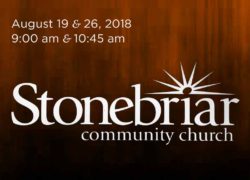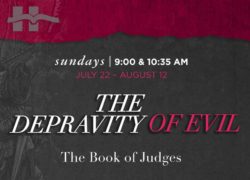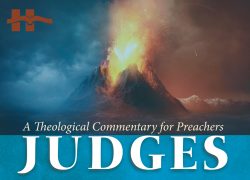aBeLOG
Welcome to the aBeLOG, a series of (hopefully!) fortnightly posts on all matters homiletical. I intend to touch on whatever grabs my attention regarding preaching—issues contemporary and ancient, ideas hermeneutical and rhetorical, personalities conservative and liberal, publications antiquarian and avant-garde. Essentially, I’m going to follow my own homiletical olfactory instincts up rabbit trails and after red herrings. Comments are always invited and appreciated.
Preaching @ Stonebriar Community Church
Quick note …
I am preaching at Stonebriar Community Church, north of Dallas, in Frisco, on August 19 and 26 (9:00 am and 10:45 am).
[For other speaking events, see here.]
Preaching @ Northwest Bible Church
Quick note …
I am preaching at Northwest Bible Church, here in Dallas, on July 22 and 29, and August 5 and 12 (9:00 am and 10:35 am).
Doing some of the darker chapters of Judges, dealing with Abimelech, Jephthah, Micah and the Levite, and the Levite and Concubine.
Lots of blood and gore promised! Come one, come all!
[For other speaking events, see here.]
“Is it Bad to Be Single?”
My fellow preaching prof, fellow Evangelical Homiletics Society member, and good friend Dr. Hershael York, of Southern Baptist Theological Seminary, in Lexington, Kentucky, has this to say about the question posed in the title of this post …
The young lions do lack and suffer hunger;
But they who seek the LORD shall not be in want of any good thing.
Psalm 34:10
God bless the singles!
Pragmatics and Preaching—A Dialogue
Please consider this an invitation to peruse and respond to:
1) Article by Abraham Kuruvilla, “‘What is the Author Doing with What He is Saying?’ Pragmatics and Preaching—An Appeal!” Journal of the Evangelical Theological Society 60 (2017): 557–80;
2) Response to my article by Buist Fanning, Senior Professor Emeritus of New Testament Studies at Dallas Theological Seminary; and
3) Rejoinder to Buist Fanning’s response by me (Abe Kuruvilla).
Article, response,
Preaching @ Stonebriar Community Church
Quick note …
I am preaching at Stonebriar Community Church, north of Dallas, in Frisco, on August 6 and 13 (9:00 am and 10:45 am).
[For other speaking events, see here.]
Preaching @ Northwest Bible Church
Quick note …
I am preaching at Northwest Bible Church, here in Dallas, on July 2, 9, 16, 23, and 30 (9:00 am and 10:35 am).
Doing the five women in Mark who come into contact with Jesus, all exemplars of discipleship.
I am looking forward to this series!
[For other speaking events, see here.]
Judges is out!
Folks, my latest commentary is out: Judges: A Theological Commentary for Preachers.
This follows the scheme of my earlier commentaries on Genesis, Mark, and Ephesians, and subscribes to the same hermeneutic that underlies those.
Check out the free chapter download here.
Endorsements
With Abraham Kuruvilla’s sensitive literary and theological reading of Judges … he shows preachers how to relate its message to the world in which we live and the alternative world Christians are called


















 Abe Kuruvilla is the Carl E. Bates Professor of Christian Preaching at The Southern Baptist Theological Seminary (Louisville, KY), and a dermatologist in private practice. His passion is to explore, explain, and exemplify preaching.
Abe Kuruvilla is the Carl E. Bates Professor of Christian Preaching at The Southern Baptist Theological Seminary (Louisville, KY), and a dermatologist in private practice. His passion is to explore, explain, and exemplify preaching.